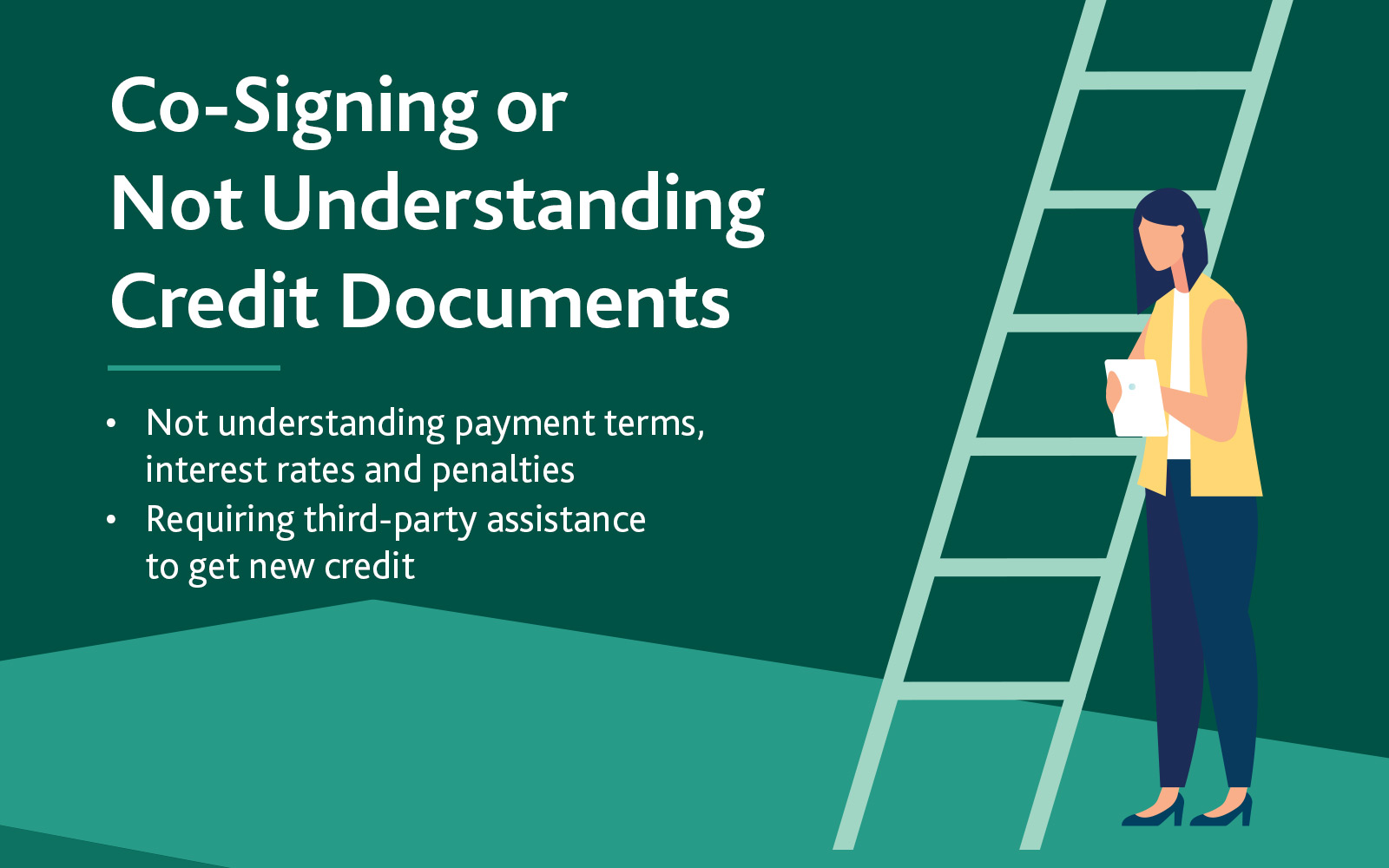2025-11-03
What steps can you take to improve your credit score?
Credit Counselling
By effectively managing your secured and unsecured debt repayment, you will be well positioned to understand and improve your credit score.
When you co-sign or guarantee a loan, you take partial responsibility for its repayment on behalf of the borrower. This means you take on a financial risk with little or no benefit to you.
Co-signing or guaranteeing a loan can be one of the most dangerous financial decisions you can commit to if the borrower is unable to repay. It can also damage your relationship with the borrower who, in most cases, is your friend or family member.
A person requires a co-signer or guarantor when they’re unable to provide sufficient credit history or income to prove they can pay back a loan. You’re eligible to co-sign or guarantee a loan when you have a strong credit history and can get a lower interest rate on the loan.

When you co-sign a loan and the borrower defaults a repayment, the lender can demand payment from you or the borrower. In some cases, the lender can exclusively pursue you for repayment. Being a co-signer makes you jointly responsible for the loan.
As a guarantor, you’re required to pay the debt if the borrower defaults. However, the lender must first demand the outstanding debt from the borrower before they come to you.
Limited guarantee: In this scenario, you guarantee a specific amount for a specific thing e.g., a car purchase. Once the loan advances, the borrower cannot increase its amount. When the borrower repays, your guarantee ends.
Continuing guarantee: This is when a borrower receives a loan facility that lasts for as long as the loan account remains open. The borrower is allowed to draw a maximum amount, and the amount of the outstanding loan may fluctuate. An example would be guaranteeing a line of credit. The principal borrower would be able to pay down and then draw back up on the account. The guarantee would last for as long as the loan account remains open.
All-account guarantee: A guarantor provides a guarantee on all accounts and loans from a specific lender. This is the riskiest form as the guarantor may not be aware of the amount owing at any given time.
In some cases, a person may co-sign for a debt without even realizing it. One common situation is when one person offers another a supplementary credit card. In most cases, the card holder agreement which you agree to once you use a credit card will state that all primary and secondary card holders are responsible for the full amount due on the credit card account.
If you decide to co-sign or guarantee a loan, here are some important factors to consider:
If you have guaranteed or co-signed a loan and find yourself struggling to pay off someone else’s debt, there are debt solutions available to help you regain control of your finances. Speak with your local MNP advisor for a free, no-obligation consultation. Once you have reviewed all your options, you can choose the route that best meets your personal financial needs.
Joel Kideckel is a Licensed Insolvency Trustee within our Markham location. To learn more about how MNP Debt can help you, contact our local office at 416.515.3921.
2025-11-03
Credit Counselling
By effectively managing your secured and unsecured debt repayment, you will be well positioned to understand and improve your credit score.
2025-06-30
Credit Counselling
Here are the ABC’s of dealing with creditors and debt collectors.
2025-06-02
Credit Counselling
With consumer debt at an all-time high, Canadians are being warned to take steps to reduce their debt before interest rates begin to rise.